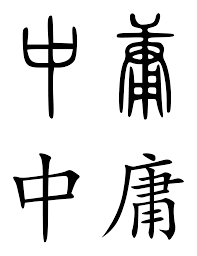
Zhongyong (中庸) (Doctrine of the Mean)
The Doctrine of the Mean is both a doctrine of Confucianism and also the title of one of the Four Books of Confucian philosophy.
The mean is also described as the 'unwobbling pivot' or zhongyong. Zhong means bent neither one way or another, and yong represents unchanging. Zhongyong represents moderation, rectitude, objectivity, sincerity, honesty and propriety. The guiding principle is that one should never act in excess.
The Doctrine of the Mean is divided into 3 parts: The Axis (Metaphysics), The Process (Politics) and The Perfect Word (Ethics). It instructed three Guidelines: Self-watchfulness, Leniency, Sincerity.
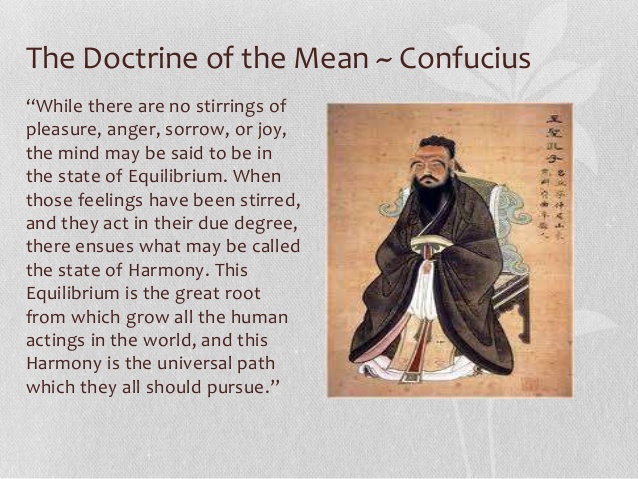
Slide from "Doctrine of the Mean" - by Adela Ilene Underwood
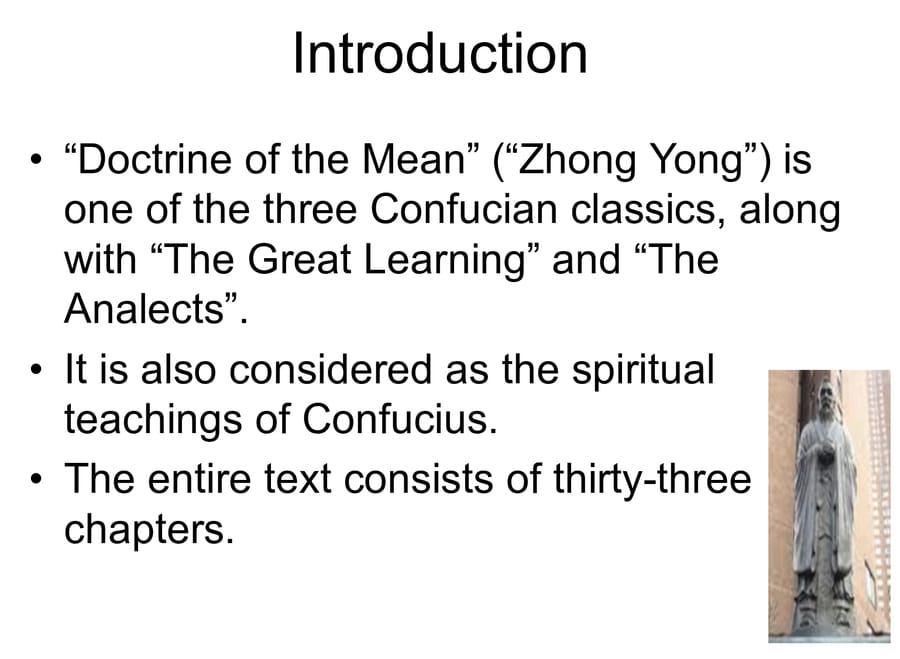
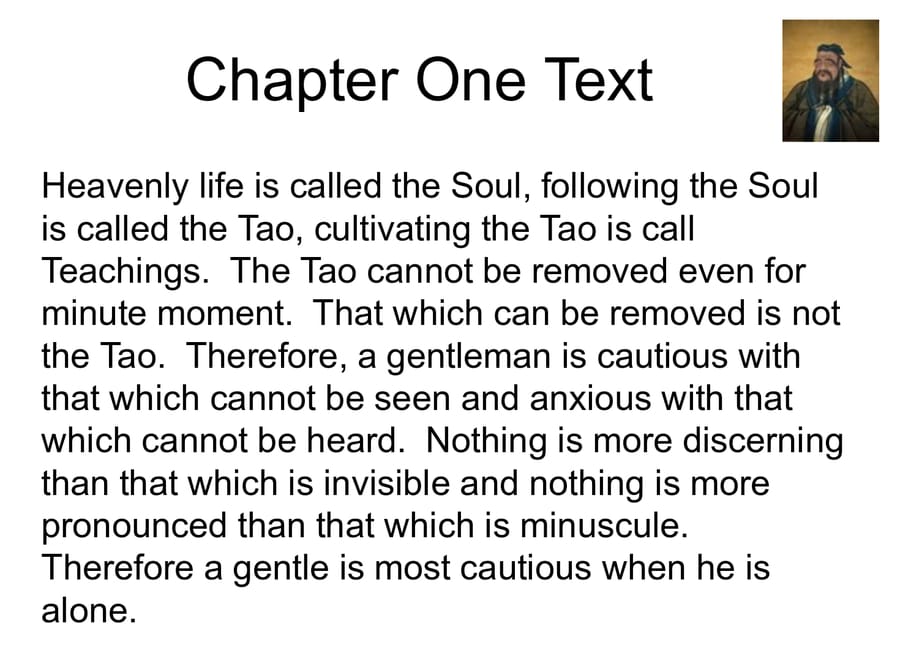
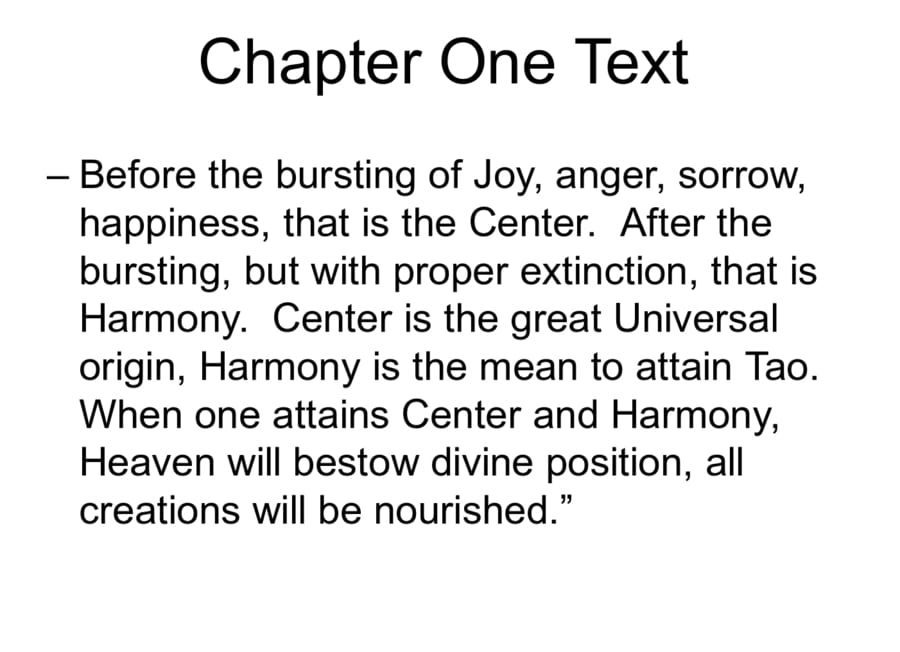
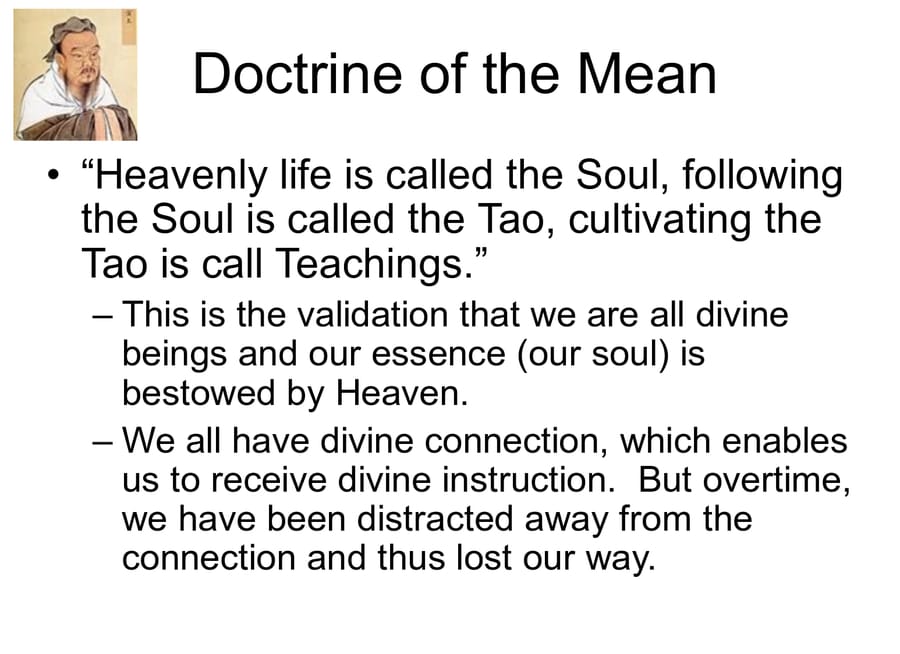
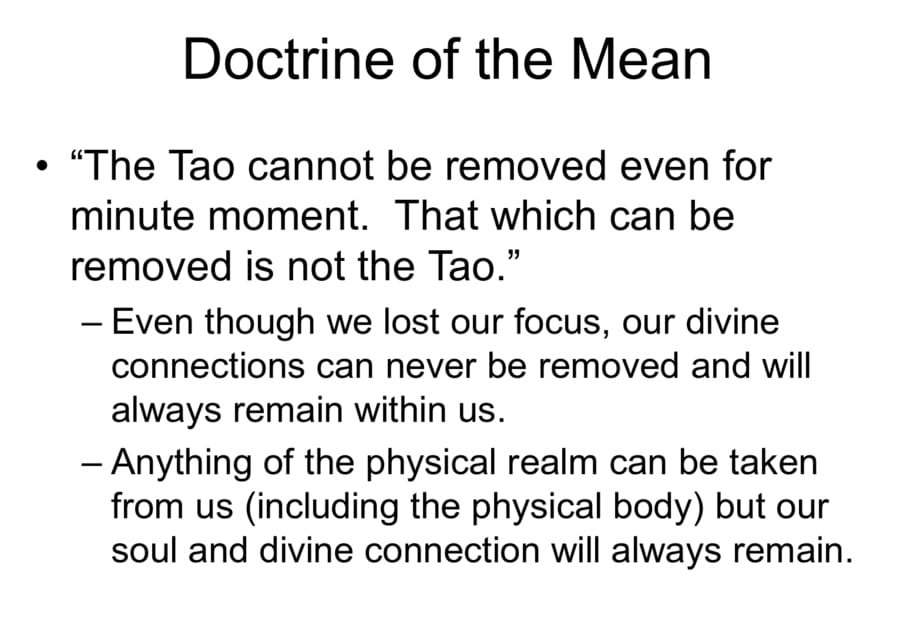
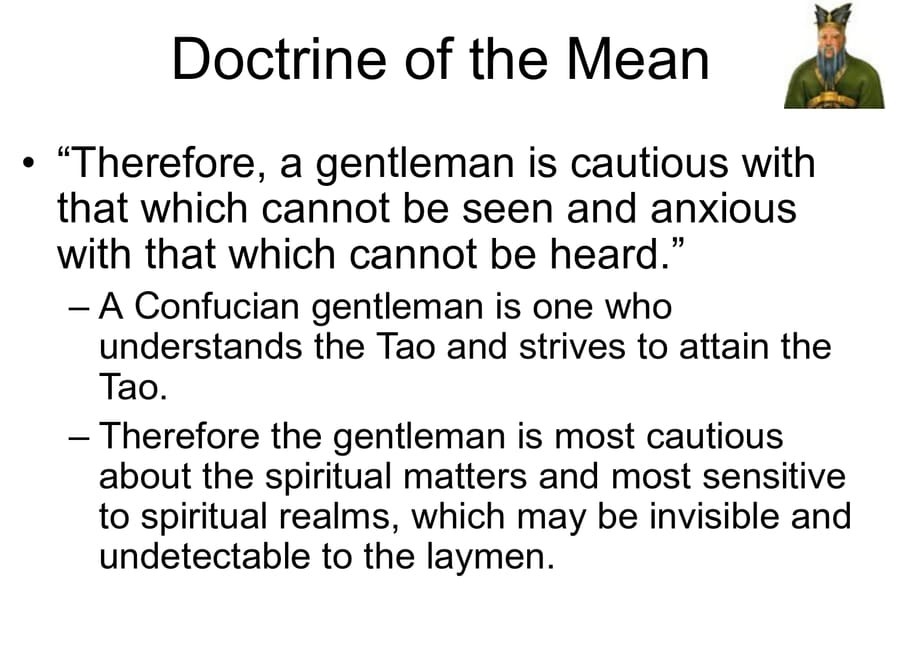
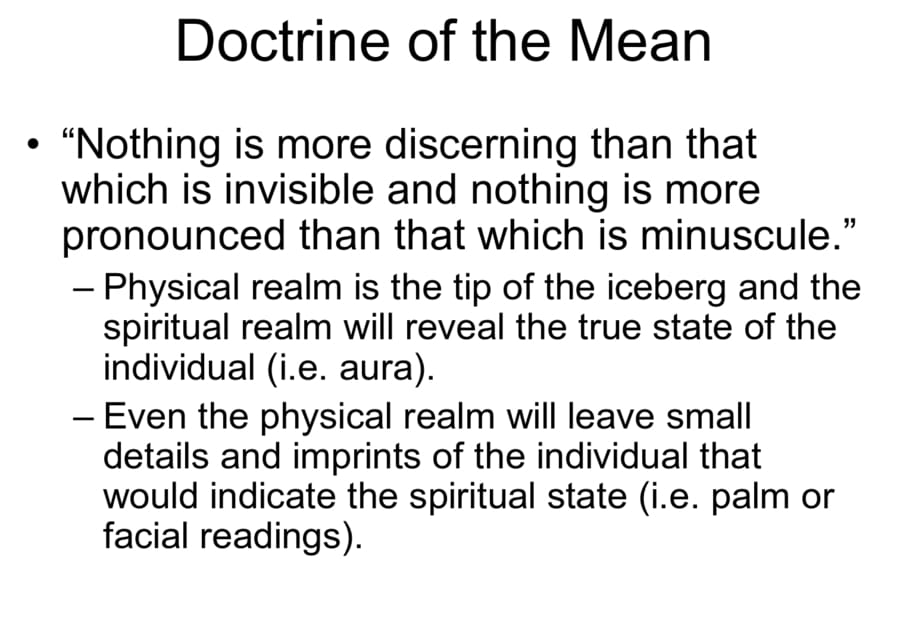
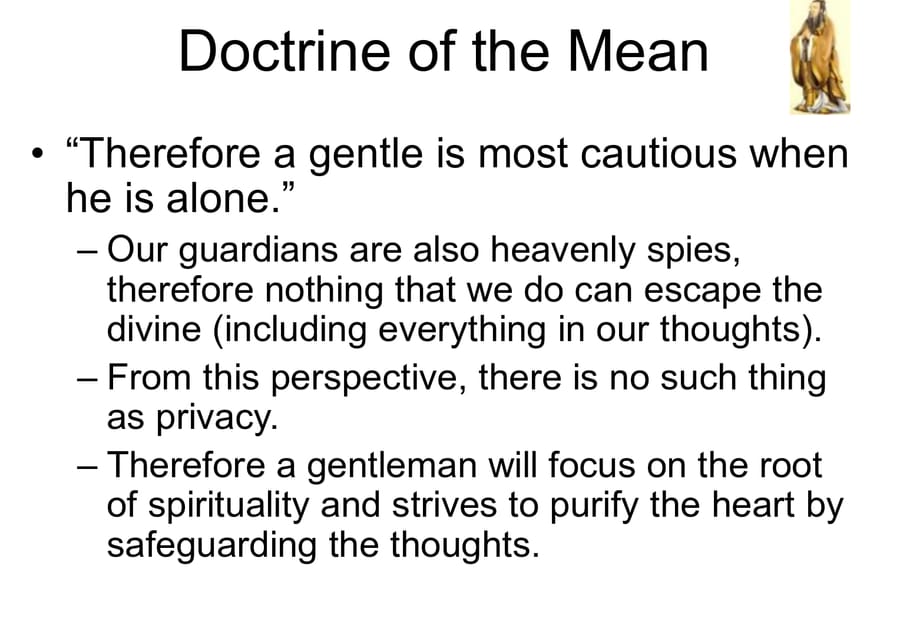


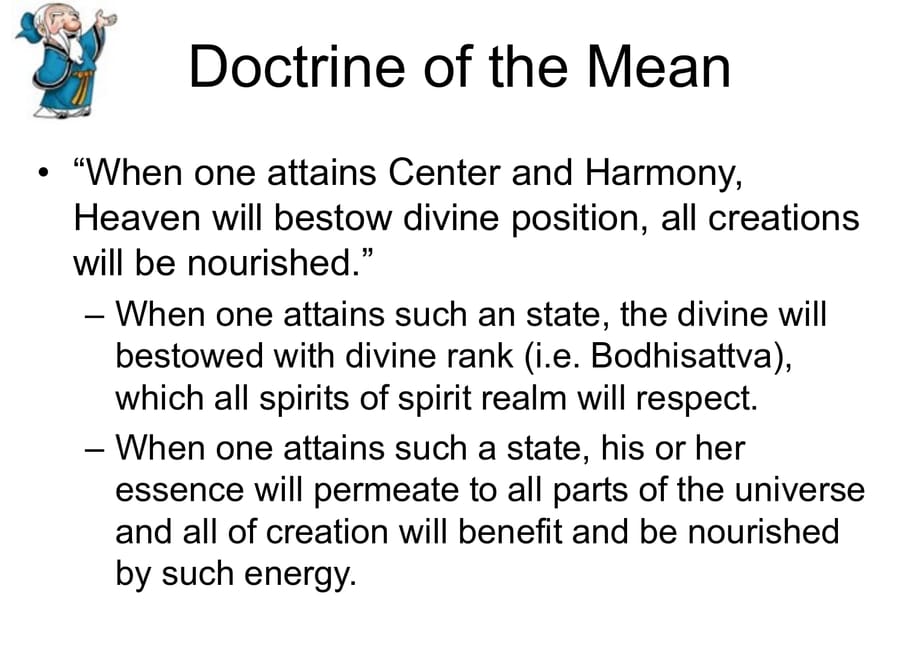
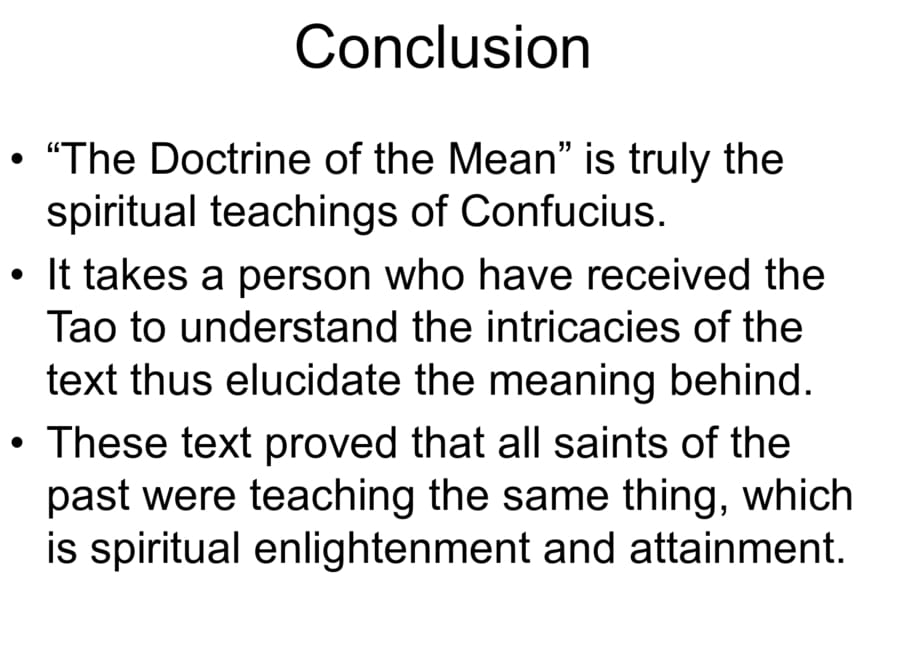
Disputes
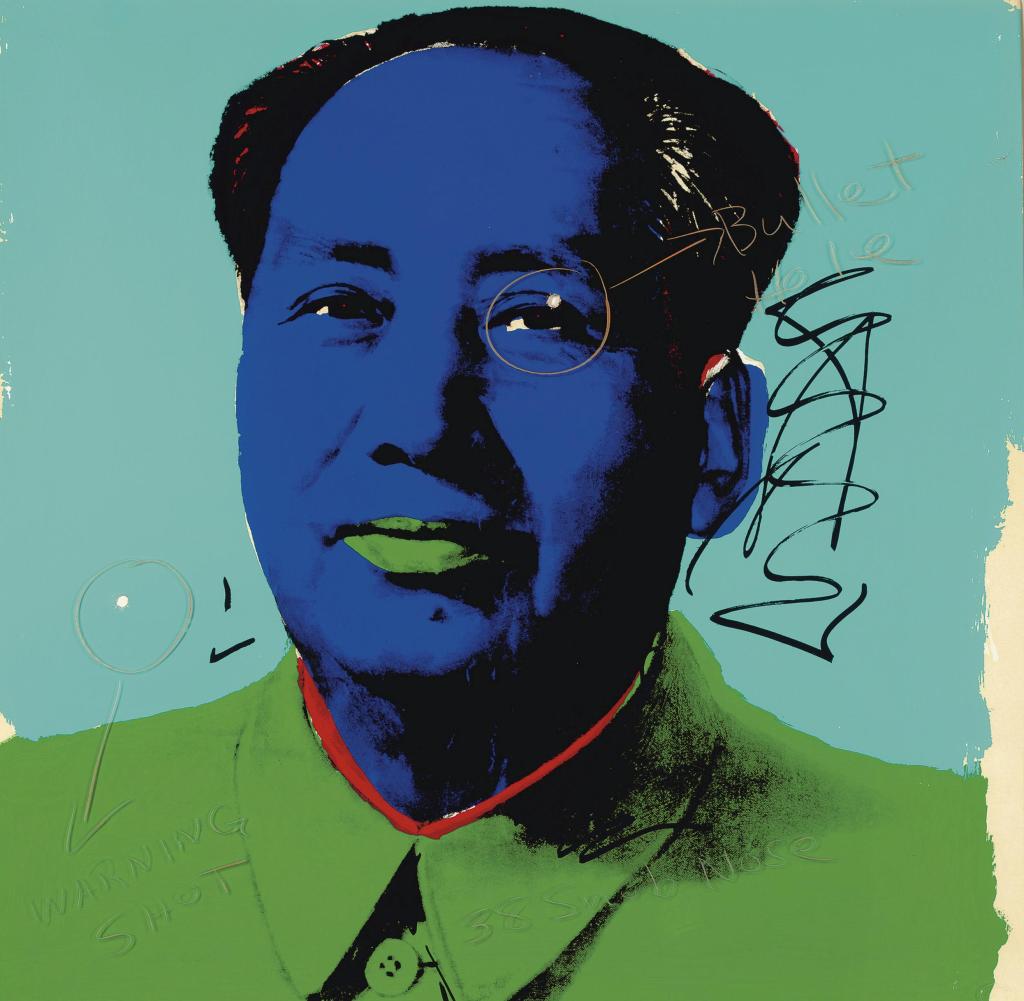
Mao Zedong, the founding father of the People's Republic of China, viewed Doctrine of the Mean as a mutation of eclecticism, which draws upon multiple theories/styles/ideas to gain complementary insights into a subject.
According to Mao's comments, Doctrine of the Mean is an eclecticism which simultaneously opposes the abolishment of exploitation. According to Mao, it failed to realize that something deserves absolute negation, and in compromise, Doctrine of the Mean prevented China from progress.
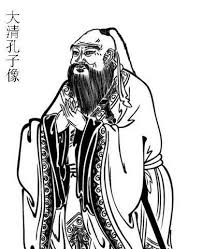
In his comment, Mao said that Doctrine of the Mean also goes against dialectics as it stops qualitative change by emphasizing maintaining balance and harmony. Lu Xun, a leading figure of modern Chinese literature, saw Doctrine of the Mean as major contributing factor of the abject ethnic stereotype in modern China, believing it prevented reform from happening."